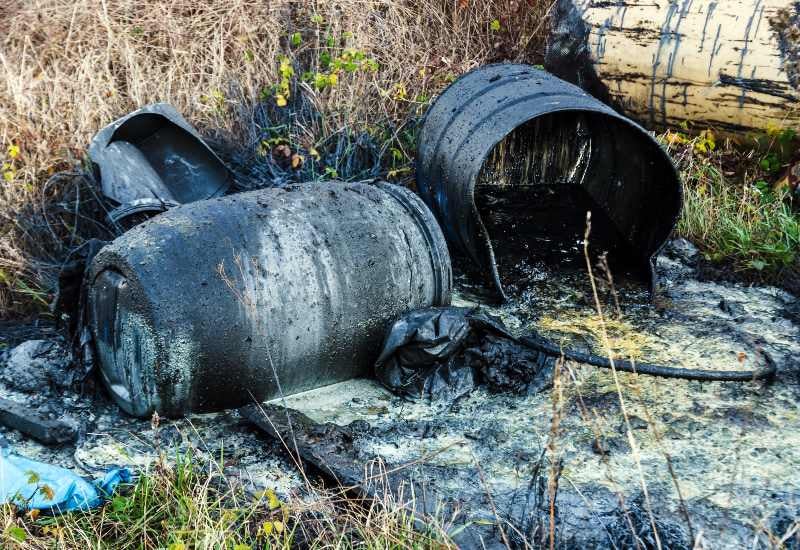Understanding the Different Types of Waste Streams
Different Types of Waste Streams
It’s important to effectively manage waste in order to maintain a clean, safe environment and promote sustainable practices. A significant aspect of this management is understanding waste streams—distinct types of waste that originate from various sources and require specific handling methods. Whether you’re a business, municipality, or industrial facility, comprehending the characteristics and types of waste streams is essential to making informed decisions about disposal, recycling, and overall waste management.
What is a Waste Stream?
A waste stream refers to the complete flow of waste from its source through to its disposal. It encompasses all the steps, from the generation of waste, collection, and transportation, to its eventual processing and disposal. Each waste stream contains materials that require different management methods to ensure they are handled safely, efficiently, and in compliance with environmental regulations.

Characteristics of Waste Streams
Waste streams can vary significantly depending on their origin and the materials they contain. Key characteristics include:
- Composition: Waste streams consist of various materials, such as organic matter, plastics, metals, or chemicals, each requiring different treatment methods.
- Source: The origin of waste, whether it be industrial, municipal, or agricultural, defines the waste stream’s characteristics and disposal needs.
- Volume: The quantity of waste generated plays a role in determining the appropriate management strategy, with larger volumes often requiring more complex handling processes.
- Hazard Level: Some waste streams contain hazardous materials, necessitating specialized disposal to protect human health and the environment.
Types of Waste Streams
Waste streams can be broadly classified into several categories, each with unique management requirements:
- Municipal Solid Waste Stream (MSW): This includes everyday items discarded by households and businesses, such as food waste, packaging, and paper products. Proper sorting and recycling are crucial for managing this waste stream effectively.
- Industrial and Commercial Waste Streams: Generated by manufacturing and production activities, these waste streams can include a wide range of materials, from scrap metals to chemical byproducts. Managing industrial waste streams often involves more stringent regulations due to the potential environmental impact.
- Hazardous Waste Streams: Containing materials that pose significant risks to health and the environment, hazardous waste streams must be managed with extreme care. This category includes items like toxic chemicals, batteries, and medical waste.
- Liquid Waste Streams: Comprising wastewater and other liquid residues, these waste streams often require treatment before disposal to prevent contamination of water bodies. Industries and municipalities must manage liquid waste streams effectively to protect water quality.
- Non-Hazardous Waste Streams: These include materials that are not an immediate threat to health or the environment, such as certain types of industrial waste, construction debris, and agricultural waste. While less dangerous, proper management is still vital to minimize environmental impact.
- Construction and Demolition (C&D) Waste Streams: Construction and demolition activities generate significant waste streams composed of materials like concrete, wood, metals, bricks, and glass. These waste streams can also include hazardous components such as asbestos, lead-based paints, or treated wood. Managing C&D waste streams involves sorting and recycling materials to minimize landfill use, reduce environmental impact, and comply with regulations. Proper management of these streams is essential for promoting sustainability in the construction industry while reducing costs associated with waste disposal.
The Importance of Understanding Different Types of Waste Streams
Recognizing and categorizing different types of waste streams is essential for several reasons:
- Environmental Protection: Proper waste stream management helps reduce pollution, conserve resources, and protect ecosystems. For example, separating recyclable materials from solid waste streams ensures they are reused, reducing the strain on natural resources.
- Regulatory Compliance: It’s important to adhere to local, state, and federal regulations regarding waste management to avoid penalties and ensure safe disposal practices. This is especially important for managing hazardous waste streams, which are subject to strict regulations.
- Cost Efficiency: Effective waste management can reduce disposal costs, enhance resource recovery, and even generate revenue through recycling programs. Understanding the types of waste streams your business produces allows you to implement more efficient and cost-effective management practices.

Difference Between Non-Hazardous & Hazardous Waste Streams
The primary difference between non-hazardous and hazardous waste streams lies in their potential risk to health and the environment. Hazardous waste streams contain toxic, reactive, corrosive, or flammable materials that require specialized handling and disposal. In contrast, non-hazardous waste streams, while still needing proper management, do not pose the same level of risk. Managing hazardous waste streams is more complex and costly, but it is essential for ensuring safety and regulatory compliance.
Why Choose Excel Industrial Group in Houston, TX?
Excel Industrial Group is a leader in waste management services with over 25 years of experience, specializing in both hazardous and non-hazardous waste streams. We understand the complexities involved in managing different types of waste and offer tailored solutions that prioritize safety, compliance, and cost-efficiency. Our expertise extends across all waste types, ensuring your business remains compliant with regulations while minimizing environmental impact. Located in Houston, TX, we provide local businesses with the support they need to manage waste effectively and responsibly.
Contact Us for All Your Waste Solutions in Houston, TX
If you’re looking for reliable and efficient waste management services, Excel Industrial Group is here to help. Our team is ready to provide you with the expert guidance and service you require. Ready to take control of your waste management? Fill out our contact form or call us today to speak with our professional team about your waste solutions in Houston, TX, and learn how we can assist in managing your waste.
